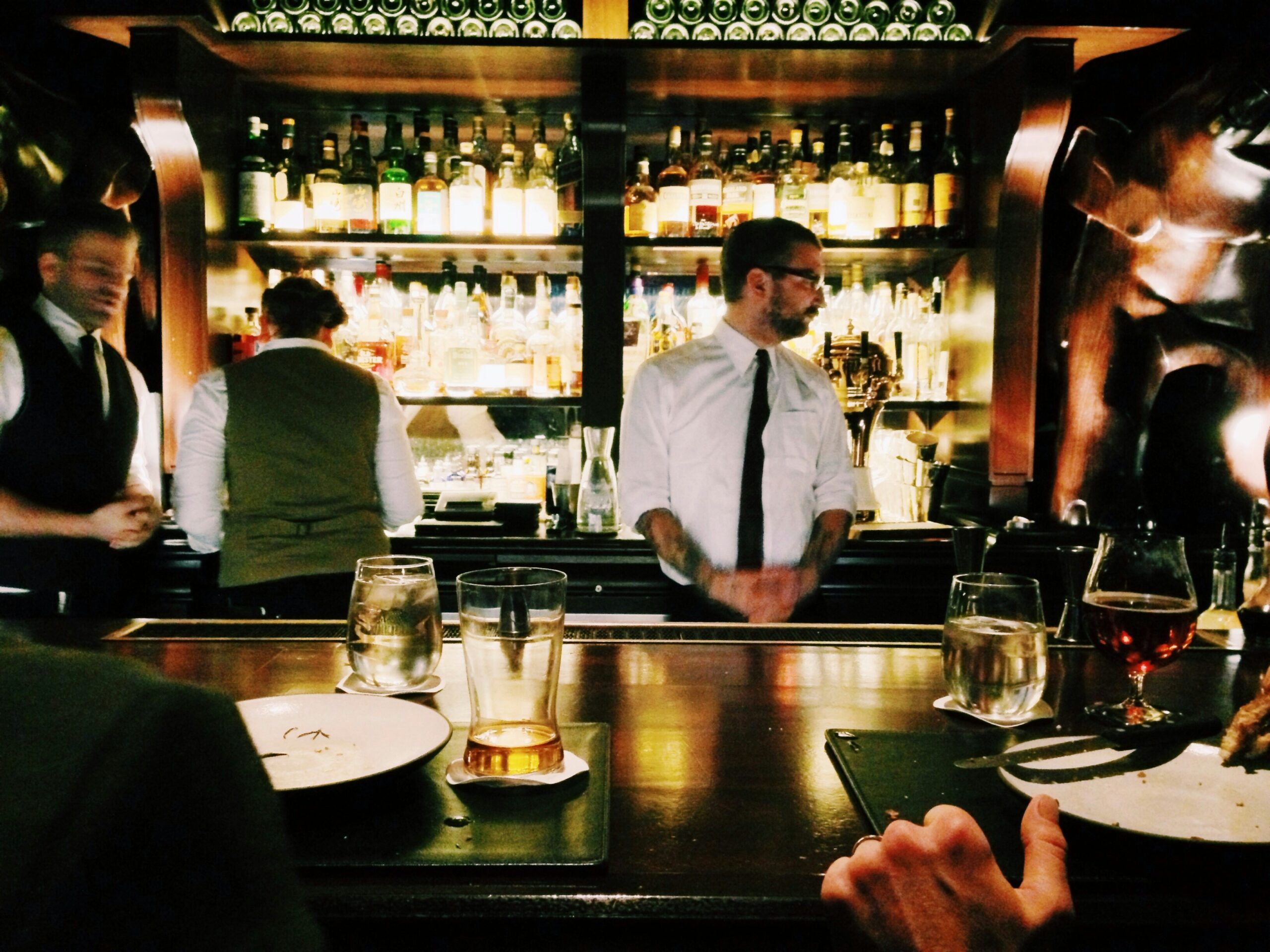When I was in college, I worked in a cultural laboratory of human behavior that taught me a lot about people.
I was a bartender.
I worked in two dance clubs in the early 80s. Close your eyes and start moving to strains of Madonna’s “Holiday.” Or slowly sway with your lover to Lionel Richie’s “Stuck on You.” Combine the music, attire, alcohol and desire and you have a potent cocktail of feelings and emotion. That’s a taste of my work life at LeBar in the Holiday Inn or Esprit at the Ramada on Front Street in Binghamton, NY.
Being a bartender taught me two critical negotiation skills when I was in my early 20s: watching and listening. These have served me through my career as a newspaper reporter, lawyer, and then sales lead and deal maker. A bartender acts, first and foremost, as a host: welcome the patrons, make them feel comfortable and provide the best service possible. But a bartender is also a monitor who stays alert to what’s happening within the crowd, follows who has had too much to drink and provides the first line of security in case of trouble. I learned from a veteran bartender to always wear a clip-on necktie (yes, we wore ties back in the day!). That way, if an angry patron tried to pull you across the bar by grabbing your tie, it would just pop off.
Late on a Saturday night I had a small group of people in front of my work station still going strong. A young woman asked me for another Screwdriver (vodka and orange juice if you don’t know). She was obviously at her limit so I suggested a glass of ice water or a soda as I could not serve her another drink. Needless to say, she was not happy. Drunk people always react badly to being told they are drunk. People will often admit they’re drunk, but they don’t want someone else saying, “You’re drunk.” She started to get emotional, and her boyfriend put a calming hand on her arm and asked for ice water. I gave it to her and then he said, “May I have a Screwdriver please?” I cocked an eyebrow and he said, “It’s for me.”
A guy who has been drinking Jack and Coke all night would not suddenly shift gears to drinking a Screwdriver. I handed him the drink. He said, “Thank you,” slid it over to his girlfriend and shot me a smug smile as he reached for his wallet.
“No charge,” I said. “It’s just orange juice.”
Yeah, I saw that coming; they left shortly afterward.
When I start working on a deal, I will spend the first day or so with my account team asking questions and listening so I know what’s coming. Their answers tell me a lot about the people I am working with, and the client I soon will be negotiating with. The words, decisions and actions I have digested create a roadmap in my head. When the moment is right, I will say to my team, “OK, we’re going to play ‘John predicts the future.’ Here is where I play back where you want this deal to go, and I tell you where it’s going to go based on what I’ve heard so far.”
My ability to do that is not some special talent; it’s the product of watching people my whole working life to always be sensitive to their next move. As a bartender I could not respond to, “I’ll have another” and as a negotiator I can’t respond to “We want a discount” unless I can project what will happen next. Being a good negotiator is not just about watching what the other party is doing at the table; it’s also about knowing what the other party wants to accomplish when they leave the table.


